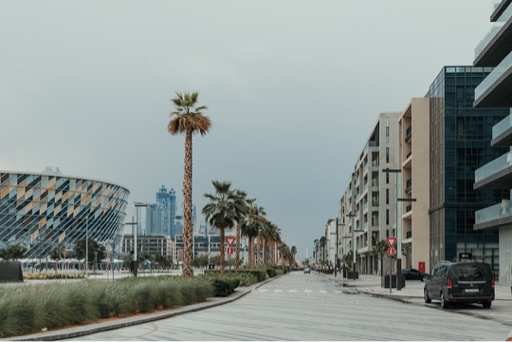Urbanization is an intricate process that profoundly influences both the environment and societal dynamics. As cities expand, they modify the natural surroundings, which subsequently impacts climate patterns. This blog aims to explore the various ways urbanization contributes to climate change, highlighting both the adverse effects and potential solutions.
One of the most significant results of urbanization is the increase in greenhouse gas emissions. As urban areas grow, they require more energy for transportation, heating, cooling, and maintaining infrastructure. Fossil fuels remain a primary energy source, leading to heightened emissions of carbon dioxide (CO2) and other greenhouse gases. According to the Global Carbon Project, urban areas contribute approximately 75% of global CO2 emissions.
Additionally, urbanization leads to the creation of “urban heat islands,” where cities experience significantly higher temperatures than their rural counterparts. The abundance of concrete and asphalt, coupled with limited green spaces, exacerbates this effect. Increased temperatures not only impact local weather but also contribute to broader climate change effects, such as altered precipitation patterns.
The expansion of urban areas often leads to the destruction of natural ecosystems, which play critical roles in carbon sequestration. Wetlands, forests, and other vital ecological zones are frequently cleared to make way for new developments. This loss of biodiversity and natural landscapes withdraws essential natural services that help moderate climate conditions.
Water management also becomes a concern as urbanization intensifies. Urban areas are more prone to flooding due to impervious surfaces that prevent the absorption of rainfall. This, combined with climate change-induced extreme weather events, can lead to severe flooding and erosion. Furthermore, polluted runoff from urban areas contaminates local water sources, complicating water management and leading to public health crises.
Despite these challenges, there are numerous strategies that cities can adopt to mitigate the impacts of urbanization on climate change. Urban planning can focus on sustainable practices, like living in dense, mixed-use neighborhoods that reduce the need for cars. Implementing green infrastructure, such as parks and green roofs, can help to counteract the heat island effect while enhancing biodiversity.
Moreover, investing in public transportation and renewable energy sources can significantly decrease greenhouse emissions associated with urban areas. Increasing the energy efficiency of buildings through better insulation and green tech can also play a substantial role in reducing the carbon footprint of cities.
In conclusion, understanding the relationship between urbanization and climate change is essential for developing effective strategies that can protect our environment. By adopting sustainable urban practices, cities can not only mitigate the negative impacts of urbanization but also become leaders in the fight against climate change.

Source: Rayo





